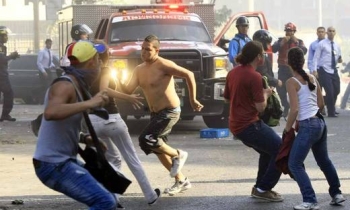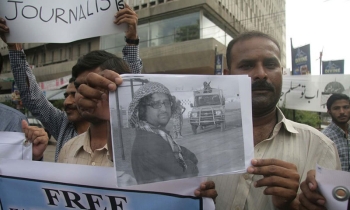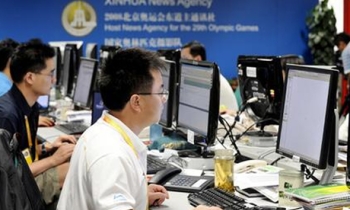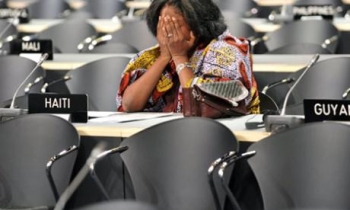Broadcast journalists from developing countries have until November 1 to apply for funding to attend a course in the Netherlands on globalization and broadcast news. November 15 is the deadline for self-paying or sponsored journalists.
The Radio Netherlands Training Centre (RNTC) is organizing the course, scheduled for February 6 to April 28 in Hilversum. Its aim is to better train broadcast journalists to ethically investigate and report on socially divisive issues that threaten social cohesion.
Course Aims: The course aims to strengthen the capacity of broadcast journalists and the organizations they work for to research, investigate and report for broadcast and internet in a responsible and ethical way, particularly on issues and events to do with economic and cultural globalisation.
Beyond national borders: More and more, around the world, societies are being confronted with the effects of globalisation. The extension of economic and financial interests beyond national borders is no longer confined, as it once was, to the operations of multinational companies and of governments but has become synonymous with the idea of a single global economy in which decisions and actions taken in one part of the world can have rapid and far-reaching consequences in another. Societies that in the past were to a large degree able to determine their own course of development and their own rate of change find themselves exposed to forces (part economic, part cultural) that threaten to change them from outside in ways they feel powerless to influence.
To challenge and question...: For people all over the world, the tempo of change and the sense of a loss of (democratic) control over their lives and over what is happening in their societies make globalisation an explosive issue. Journalists working for radio, television and the Internet have seen the globalisation of the very media they work for. They have observed and felt its effects in ways that are both positive and negative and are well positioned to play an important role in informing people fully about globalisation. In doing so, they have a duty not only to report on its effects but to challenge and question what is happening, to clarify issues and encourage full and open debate, ensuring it includes the people whose lives globalisation most affects.
Reasons and effects: Special attention will be given to analysing and researching the reasons for and the effects on societies of economic and cultural globalisation and to the role of the broadcast journalist and the broadcast media in tackling issues to do with it. Attention will be given to reinforcing basic broadcast journalism skills as well as to acquiring other important skills such as effective communication and teamwork (under pressure).
Learning by doing: Participants will develop the knowledge and practice of broadcast news and current affairs; multi-skilling in broadcast news and current affairs; introduction to and use of digital technology and new media in broadcast journalism; the (potential) impact of new media and new technologies on broadcast journalism. There will be a considerable degree of interaction between radio and television participants. Course participants will work with analogue and digital technology for radio and television and be involved in the design and development of an Internet site. For their assignments participants will be sent out to various locations in the Netherlands. After leaving the Netherlands at the end of the course participants will become part of a network of journalists and experts through RNTC's Media Community website, intended to foster cooperation and further the exchange of ideas and experience in relation to the theme of globalisation and to broadcast journalism in general.
RNTC is a centre of excellence in media, education and development, attached to the international broadcaster Radio Netherlands.
It focuses both on the development of the media sector, and on the use of media for development.
RNTC works with (media) professionals all around the world, including broadcast journalists, programme-makers, managers of media organisations, trainers as well as professionals and NGO's seeking guidance on the most effective way of sharing a message with a diversity of audiences and target groups.
Established in 1968, Radio Nederland Training Centre organises a wide variety of courses, seminars, conferences and workshops both "on the spot" and in the Netherlands. It uses a multimedia approach, with a special emphasis on electronic media such as radio, television and Internet.
Participants will work with analog and digital technology for radio and TV, and they also will help design and develop a Web site. After the course, the participants can join a network of journalists and experts interested in globalization issues, communicating through the RNTC Web site.
Applicants should be mid-career broadcast journalists with good command of English. For a list of developing countries where journalists are eligible for assistance, click here.
For more information, contact info@rntc.nl or click here.









